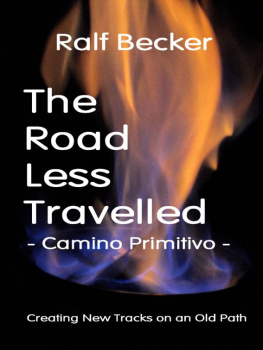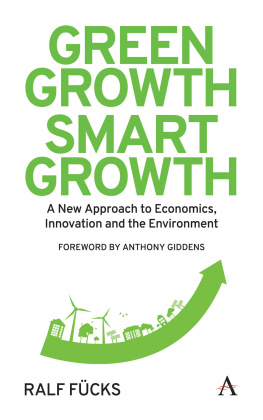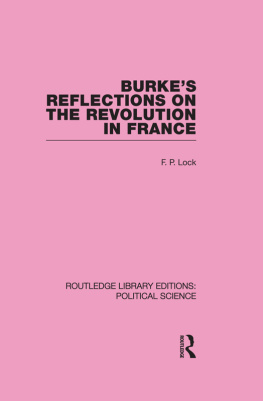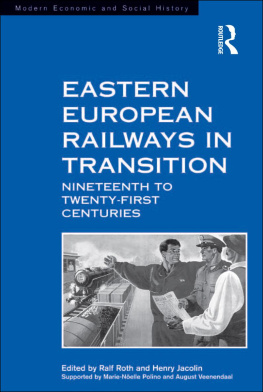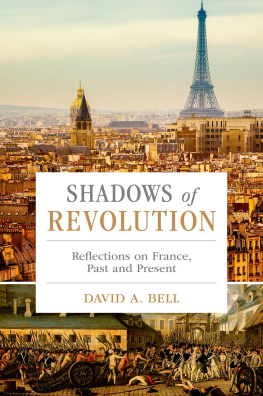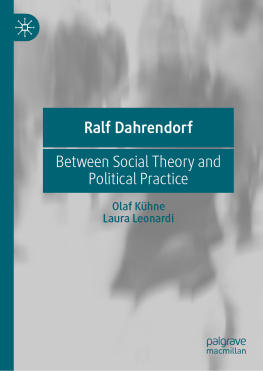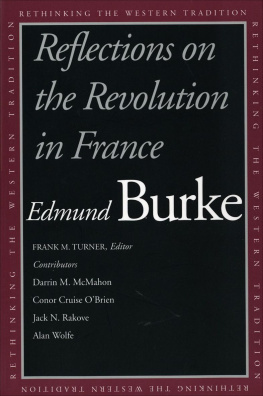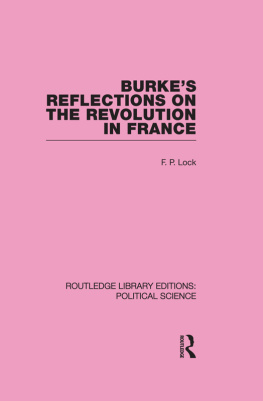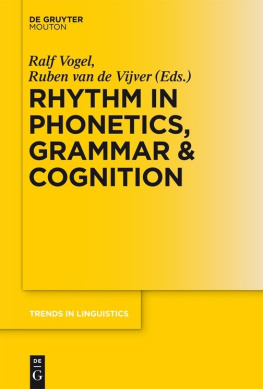Reflections on the Revolution in Eroupe
Reflections on the Revolution in Eroupe
Ralf Dahrendorf
With a new introduction and postscript by the author
Originally published in 1990 by Times Books
Published 2005 by Transaction Publishers
Published 2017 by Routledge
2 Park Square, Milton Park, Abingdon, Oxon OX14 4RN
711 Third Avenue, New York, NY 10017, USA
Routledge is an imprint of the Taylor & Francis Group, an informa business
New material this edition copyright 2005 by Taylor & Francis.
All rights reserved. No part of this book may be reprinted or reproduced or utilised in any form or by any electronic, mechanical, or other means, now known or hereafter invented, including photocopying and recording, or in any information storage or retrieval system, without permission in writing from the publishers.
Notice:
Product or corporate names may be trademarks or registered trademarks, and are used only for identification and explanation without intent to infringe.
Library of Congress Catalog Number: 2004055386
Library of Congress Cataloging-in-Publication Data
Dahrendorf, Ralf.
Reflections on the revolution in Europe / Ralf Dahrendorf; with
a new introduction and postscript by the author.
p.cm.
Originally published: New York: Times Books, c1990.
ISBN 0-7658-0828-5
1. CommunismEurope, Eastern. 2. RevolutionEurope, Eastern. 3. Europe, EasternPolitics and government1989. I. Title.
HX240.7.A6D34 2005
320.947dc222004055386
ISBN 13: 978-0-7658-0828-8 (pbk)
CONTENTS
As this is written, fifteen years have passed since the momentous events of 1989 to which this book of passionate analysis is devoted. The new edition is an unchanged edition, save for the Postscript, which explains the genesis of the book and deals with some more recent developments in post-communist Europe. Should the analysis not have been updated, or revised in the light of later evidence? The reader will soon discover that this would have been all but impossible. The book itself has become a document of the time for which it was written, and its argument remains a reminder of the power and the limitations of social analysis applied to contemporary events.
This is not to say that everything claimed about the prospects of the post-communist world stands up to the scrutiny of later events. In some ways, the road to freedom turned out to be more arduous than I anticipated in 1990. The Postscript points in particular to the difficulties of creating viable state structures sustained by the will of the people. Democracy is more than elections. The creation of sustainable institutions and a spirit of active citizenship is the more difficult part of the process.
In other ways, normalization has turned out to be a little easier than I had anticipated. The trek through the valley of tears and the attendant risk of a revival of fascist tendencies were mitigated by several factors. The most important among these was probably the European link. Today, the post-communist countries of East and Southeast Europe are all members of the European Union (or, in the cases of Romania and Bulgaria, close to becoming members). The path to membership led through complex negotiations that, however, included the adoption of the so-called Copenhagen criteria of the European Union. These criteria, adopted by an EU summit at Copenhagen in 1993, demanded the introduction of a constitution of liberty in candidate countries. In retrospect one is led to conclude that this process, motivated by the desire of countries to be part of Europe, stabilized democracy in post-communist countries and thereby helped them to get through the most difficult phase of the road to freedom relatively unscathed.
In 2004 the aside is apposite that this process provides an instructive illustration of the ways in which democracy and the rule of law can be exported from a free world to a world seeking freedom. In the European orbit, Turkey will be the next major test.
This book is, of course, fashioned on Edmund Burkes Reflections on the Revolution in France. This seemed amusing to me since, like Burke, I chose to put my analysis in the form of a letter to a gentleman in Warsaw. Yet for two reasons the analogy is also misleading.
One of these is that Burke was a great skeptic so far as the French Revolution was concerned, whereas I was, and am, thrilled and deeply pleased about the victory of the open society in East Central Europe. The events of 1989 mark the end of the leaden hand of nomenklatura rule that in turn followed one of the two most vicious regimes of totalitarian dictatorship in the twentieth century. Far from ending history, 1989 marks the new beginning of history. After decades of Cold War stalemate, not just Europe but the whole world began to move again to new horizons. Not everybody likes such a prospect, and it certainly has its seedy side, but for someone who is motivated by the hope of an enlightened cosmopolitanism, the world after 1989 is a better place to live in than the entire short century from 1914 to 1989.
Thus, Edmund Burkes liberal conservatism is not the guiding idea of this book. Nor is its character strictly comparable to Burkes political pamphlet; rather it is informed by another genre. I have long been an admirer of short books of social analysis. Classical examples would be Karl Marxs The 18th Brumaire of Louis Bonaparte, or Werner Sombarts Why Is There No Socialism in the United States?, or even Max Webers (not quite so short) Protestant Ethic and the Spirit of Capitalism. The gem by my teacher, T. H. Marshall, on Citizenship and Social Class, also belongs in this category. I would not presume to compare these Reflections with such masterpieces, but my intention is the same: to apply theory to specific events or problems rather than to expound it in abstract.
In East Central Europe the Reflections are still read and discussed. This is not so obviously the case in the West. Yet the issue of the path from dictatorship to democracy remains firmly on the agenda, and there just may be lessons to learn from 1989. In any case, I am deeply grateful to Irving Louis Horowitz and his colleagues at Transaction Publishers for having chosen this little book for republication fifteen years after 1989.
R.D.
London
July 2004
D EAR MR. J.,
When at the end of my recent trip to your country I came to see you on that sunny morning in early March, I expected us to sit down to a cup of coffee and chat a little about current affairs in the manner of what the French sometimes call caf de commerce. The winter was odd, was it not? Stormy, but mild. The greenhouse effect, no doubt. In fact, it may have saved Gorbachev. At any rate, it reduced his energy bill. But you never allowed such small talk to begin. Instead, you showered me with questions about the riddles of Poland and Europe after the revolution of 1989 until I was too dazed to answer any of them properly. Only now, in the quiet of my Oxford study, surrounded by books and papers and gazing out at the friendly motley of the buildings of St. Antonys College, do I find the resources to try to respond to you properly.
What does it all mean, and where is it going to lead (you wanted to know)? Are we not witnessing a process of dissolution without anything taking the place of the old and admittedly dismal structures? How can political parties emerge (you asked, for example) when the old ones of 1946 and of the interwar years have become irrelevant, and new parties are unable to find a social base to sustain them? And why (you added almost anxiously) had I written some time ago that not only socialism, but social democracy was on the way out? What is the market economy going to do to the social texture of the country? Will it not make some rich while the many get poorer than ever? What will happen to cultural life? Do we have to read and watch trash now that we are free and no longer have inexpensive books and subsidized quality films? How can we bring about the rule of law? Have not the old judges lost all credibility, while we cannot find new ones who guarantee independence and objectivity? And what about the German menace? Are we not going to see a balkanized Europe dominated by the one power which is uniting rather than disintegrating? Was I (you inquired) on balance hopeful so far as the new Europe is concerned, or anxious and worried like many of your compatriots, and as you gathered, others in East Central Europe as well?




